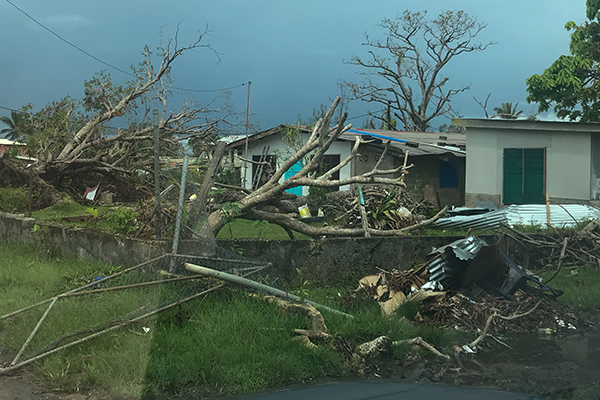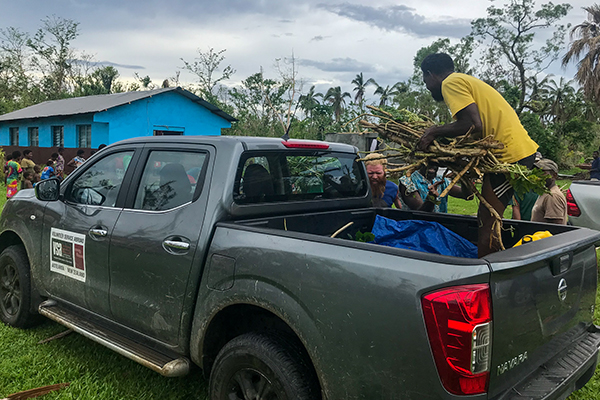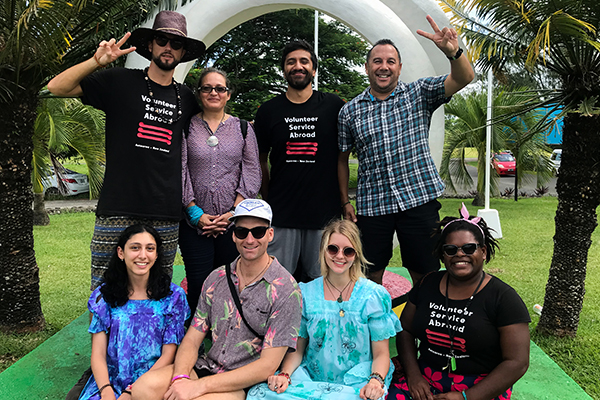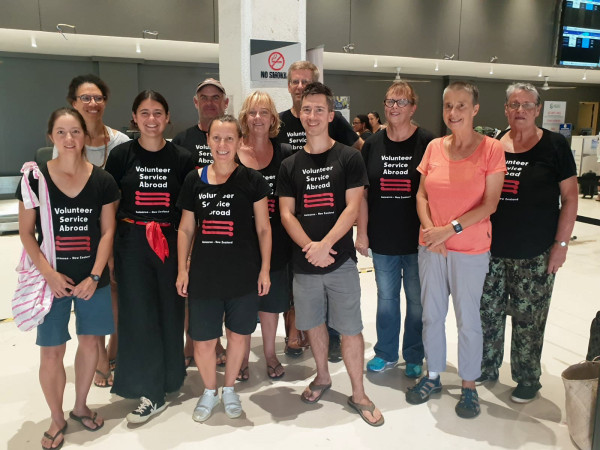15.06.2020 - Since VSA’s decision to repatriate all volunteers in Vanuatu on 14 March the events that have unfolded here have been a blur of both chaos and calm. Through the repatriation, closing of international borders and suspending international flights due to the global pandemic, an earthquake and a devastating cyclone, Vanuatu has proven to be a country of remarkable resilience. This is not a value or quality that we can teach NiVan citizens but rather a virtue that we can learn from.
Being a programme manager (Trevor Johnston) on the ground both as an observer being engaged in the community has proven eye-opening and a huge learning opportunity. Sustainable development is seen as the balance between our financial resources, our social responsibilities and the need to protect the environment. Yet, in Vanuatu, through each crisis, it has been much more than that. Here sustainable development is a moral duty of care towards Vanuatu’s citizens. The deep cultural connection between communities, tribes and islands galvanize the country into a devotion to care for their people.
The leadership of early decision-making in stopping all cruise ships in early March, the immediate messaging around social distancing and hand washing, and closing the borders, probably saved Vanuatu from a COVID-19 outbreak. Handwashing stations outside every store in Port Vila were available in mid-March, as well as curfews, signs and media notifications. The speed and efficiency were unbelievable and at least equal, if not better, prepared compared to many other nations.
Being “stuck” in Port Vila, as flights to New Zealand were cancelled on 25 March, proved to be a blessing as the rest of the world went into lockdown with restricted movement and freedom. Yet in Vanuatu we were in a glorious bubble of relative normality and unspeakable beauty. It felt safe.
Life seemed normal until TC Harold hit Vanuatu on 6 and 7 April. All international and domestic flights had been cancelled so assistance to the most devastated areas was difficult. Some aid arrived from New Zealand and Australia, and even though domestic flights resumed on 11 April, the logistics of providing humanitarian aid would have been challenging for any country.

Cyclone damage Santo
The photos and stories of devastation were heart-wrenching and the decision to stay and assist was an easy one. On my return to Luganville in late April, I was stunned by the extent of damage and destruction. I volunteered my time for a local charity to deliver food and supplies to remote villages and with Santo Medical to do medical outreach in the community and remote areas. While there was physical damage, it was the remarkable resilience of the people that I saw and met along the way that opened my eyes to the deep sense of community of the NiVan people.

Delivering food to Najara village
For most of us, losing our home and possessions can be emotionally devastating. To the NiVan people it is something they have lived with for hundreds of years; it’s a part of life. They help each other; they share resources, offer a kind word or a beaming smile, plant some island cabbage and manioc, and find time to share in the joys of life over a bowl of kava.
A local told me that he lost his entire house in the cyclone, and then he laughed. I asked why he was laughing. He said, “Trevor my house is in Fiji, I hope someone finds it and uses it. It’s a good house!” And he burst out laughing again. He then said, “Tomorrow, they (meaning the community), will come help me rebuild my new house”.
Resilience is not only about enduring hardship; it’s about letting go and bouncing back. In Vanuatu bouncing back is always with the community at your side. It’s a beautiful country of beautiful people.
The head of the Vanuatu Government, Prime Minister Bob Loughman, has already encouraged every business and all Vanuatu citizens to take time while in the State of Emergency to do whatever is necessary to ensure that families are safer when a next cyclone strikes and to plant and raise food. “During good times, we must work extra hard to prepare for the next cyclone season,” he said.
It’s a country that cares for its people and its future.
It is Vanuatu.

VSA's team farewell

Ka mate te kāinga tahi, ka ora te kāinga rua - When one house dies, a second lives
